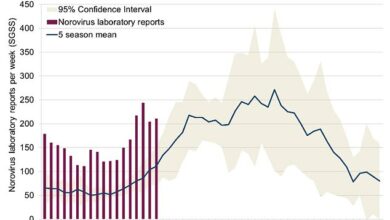Michigan resident infected with mutated virus that caused worldwide panic


A Michigan resident has tested positive for swine flu in an “isolated” case, authorities say.
State health officials confirmed Friday that an unnamed person tested positive for swine flu, also known as influenza A H3N2v, in late July.
The infection is usually spread through contact with pigs, but it is unclear how the individual became infected.
The news comes after a Pennsylvania resident was diagnosed with influenza A in March after direct contact with farm animals.

People can get swine flu through direct contact with infected pigs. The strains that infect humans are often a mix of bird flu, swine flu and human flu viruses.
However, the disease is extremely rare in the US, with only three people infected last year.
Two of these patients had attended various agricultural fairs in Michigan and had come into direct contact with pigs.
Both had mild illness and made a full recovery. There is no evidence that they transmitted the infections to others.
The third was a child from Montana who had also attended a fair.
Dr. Natasha Bagdasarian, medical director of the Michigan Department of Health and Human Services (MDHHS), said, “While we believe this is an isolated case, Michigan residents should be on the lookout for flu-like symptoms: fever, respiratory symptoms such as cough and runny nose, and body aches.”
‘If you have these symptoms, we recommend that you get tested for both flu and COVID-19. Home COVID-19 tests are widely available, and both flu and COVID-19 tests are available at many pharmacies, urgent care centers, and clinics.’
“Regardless of test results, stay home until you have recovered.”
The individual’s condition is currently unknown. Cases are usually mild and resolve on their own within a few weeks, with little risk of death.
There are several strains of swine flu, including H1N2 and the 2009 epidemic H1N1.
Infections are rarely spread from animals to humans, but the 2009 outbreak was caused by a mutation of the virus that allowed it to infect humans and cause disease.
The H1N1 strain contained a combination of avian, swine, and human influenza A viruses.
The outbreak disproportionately affected children and teenagers, who were more susceptible to severe illness requiring hospitalization.
A report from the World Health Organization found that infections in the US rose to 59 million that year, with 265,000 hospitalizations and 12,000 deaths.
People can get swine flu through direct contact with infected pigs. The strains that infect pigs are often a mix of bird flu viruses, swine flu viruses, and human flu viruses.
To prevent infection, the CDC recommends avoiding contact with pigs, and also not drinking or eating near the animals. If you own pigs, it’s also important to monitor them for signs of illness, the health organization added.
People who have direct contact with the animals, such as farmers and slaughterhouse workers, are at greatest risk of contracting the zoonotic disease.




